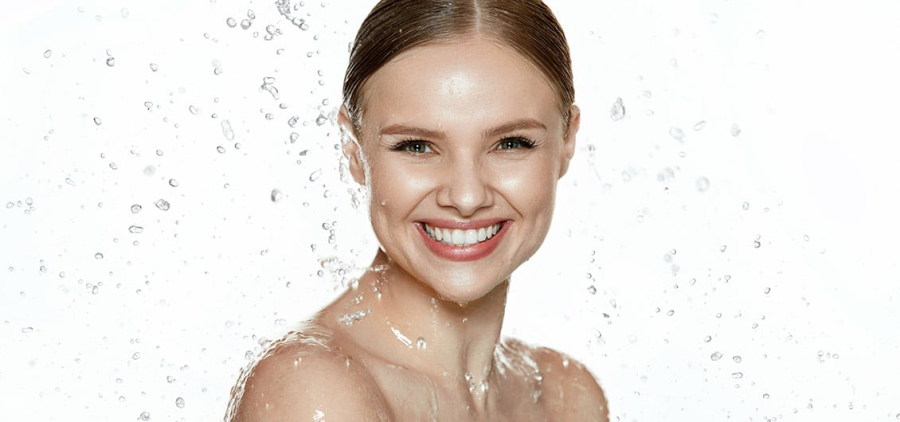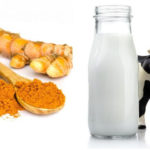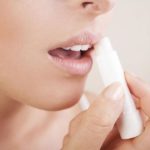Hydrated skin is a condition in which the skin has enough water to maintain moisture and elasticity. When the skin is hydrated, it forms a natural barrier against external factors such as dryness, temperature, or environmental influences. Hydrated skin also tends to have a bright, smooth complexion.
Lack of water, lack of moisture leads to water loss, causing various aging problems such as wrinkles, increased pigmentation, acne… Moreover, the skin becomes drier due to lack of natural oils and water.
Dehydrated skin is more prone to itching and inflammation, more sensitive, duller, and shows signs of premature aging… Therefore, moisturizing and hydrating is essential for all skin types, including oily and combination skin.

Caring for Hydrated Skin in Dry Weather
– Drink enough water: Drinking enough water helps maintain a healthy circulation, which provides important nutrients and oxygen to the skin, keeping it hydrated and youthful. Drink more water and consume water-rich foods.
– Keep it clean: Products containing parabens and sulfates can strip the natural oils from the skin, causing it to become dry and prone to dehydration. Consider switching to gentle, natural facial cleansers to protect the moisture barrier and provide moisturizing factors for the skin.
– Avoid hot and prolonged showers: Taking long, hot showers can remove the protective barrier of the skin, leading to water loss and the removal of necessary oils.
– Use a face mask: Incorporating a hydrating face mask into your daily skincare routine will keep your skin hydrated, plump, and moisturized.

– Use a humidifier: You can use a humidifier when the humidity in the surrounding air is low.
– Exfoliate regularly: Exfoliating will remove dead skin cells, unclog pores, and allow the skin to better absorb moisturizing ingredients.
– Eat water-rich foods: Citrus fruits such as oranges and lemons contain a lot of juice and are rich in vitamin C, which is important in maintaining the structure of the skin. In addition, foods rich in vitamin A and B3 are also essential for improving skin health.
– Reduce caffeine intake: Both caffeine and alcohol can reduce the water content in the skin, leading to dehydration. Therefore, limit your caffeine and alcohol intake.

– Use moisturizing skincare products: Choose a lightweight moisturizer with nourishing ingredients such as antioxidants and fatty acids to help lock in moisture for the skin. Ingredients like hyaluronic acid, vitamin E, or jojoba oil can also help retain moisture and keep the skin hydrated.
– Use a facial mist: Spraying facial mist onto the face is an effective way to keep the skin hydrated throughout the day. Look for a facial mist that contains natural ingredients such as rose water or aloe vera gel.




































